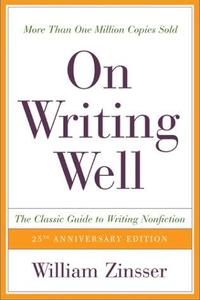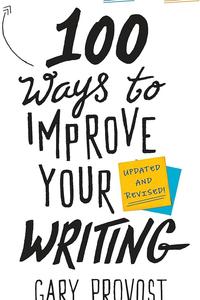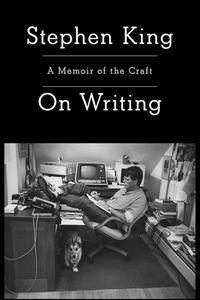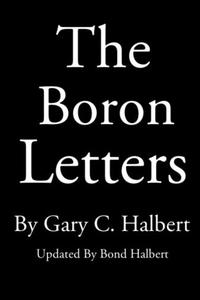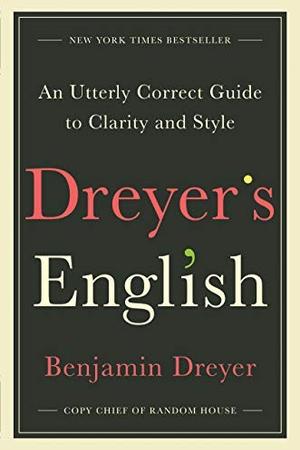
Dreyer's English by Benjamin Dreyer: Summary & Notes
by Benjamin Dreyer
In One Sentence
A witty, practical guide to writing better English—from a legendary copy editor who shows that good grammar serves clarity, not arbitrary rules.
Key Takeaways
- Go a week without "very," "rather," "really," "quite," "just"—see if you miss them
- Most rules you learned in school aren't actually rules (split infinitives are fine)
- Avoid clichés—they're lazy shortcuts that deaden prose
- Read your work aloud—your ear catches what your eye misses
- Punctuation is rhythm—commas are breaths, periods are stops
- Rules exist to serve clarity—break them when clarity demands it
Summary
As entertaining as a deep book about words and grammar can be. What I enjoyed most about this book is that it portrays language as a series of choices, a grayscale, rather than the typical black-and-white rules we are given. Dreyer does a great job discussing when and why some choices are made, and then suggesting a course. This context gives much better understanding than most grammar lessons. Not for those who are casually interested in writing - read Stephen King’s On Writing instead. Excellent for those who seriously want to improve their understanding of English.
Who Should Read This Book
- Writers who want to polish their prose
- Anyone confused about grammar "rules"
- Editors and copy editors
- Language lovers who enjoy witty writing about writing
FAQ
What are Dreyer's main writing tips?
Cut filler words (very, really, quite). Read aloud to catch errors. Don't be a slave to fake "rules." Avoid clichés. Trust your ear. Make every word earn its place. And remember: rules serve communication, not the other way around.
📖 Chapter-by-Chapter Breakdown
Click to expand the full detailed notes for every chapter →
📖 Chapter-by-Chapter Breakdown
Click to expand the full detailed notes for every chapter →
Notes
Part 1 – The Stuff in the Front
Chapter 1: The Life-Changing Magic of Tidying Up (Your Prose)
Here’s your first challenge: Go a week without writing
- very
- rather
- really
- quite
- in fact
And you can toss in—or, that is, toss out—“just” (not in the sense of “righteous” but in the sense of “merely”) and “so” (in the “extremely” sense, though as conjunctions go it’s pretty disposable too).
- Oh yes: “pretty.”
- And “of course.”
- And “surely.” And “that said.”
- And “actually”?”
Chapter 2: Rules and Nonrules
- Why are they nonrules? So far as I’m concerned, because they’re largely unhelpful, pointlessly constricting, feckless, and useless.
The Big Three
- 1. Never Begin a Sentence with “And” or “But.”
- No, do begin a sentence with “And” or “But,” if it strikes your fancy to do so. Great writers do it all the time.
- 2. Never Split an Infinitive.
- 3. Never End a Sentence with a Preposition.
The Lesser Seen
I’m sure there are many more secondary nonrules than these seven, but these are the ones I’m most often asked about (or challenged on), so:
1. Contractions Aren’t Allowed in Formal Writing.
- Ignore this, and use them.
- The correct construction is “should have” (also “could have,” “would have,” etc.).
2. The Passive Voice Is to Be Avoided.
- Here’s a nifty trick that copy editors like to pass among themselves that comes in handy when you’re assessing your own writing.
- If you can append “by zombies” to the end of a sentence (or, yes, “by the clown”), you’ve indeed written a sentence in the passive voice.
- A good example of using passive voice: “The floors were swept, the beds made, the rooms aired out.” The point of interest is the cleanliness of the house, not a particular subject.
3. Sentence Fragments. They’re Bad.
- I give you one of my favorite novel openers of all time, that of Charles Dickens’s Bleak House: ...
- That said, do wield your fragments with a purpose, and mindfully.
4. A Person Must Be a “Who.”
- The man that got away, the teachers that attended the conference, the whoevers that whatevered.
5. “None” Is Singular and, Dammit, Only Singular.”
6. “Whether” Must Never Be Accompanied by “Or Not.”
- In many sentences, particularly those in which the word “whether” is being used as a straight-up “if,” no “or not” is called for.”
- “That’s the whole thing: If you can delete the “or not” from a “whether or not” and your sentence continues to make sense, then go ahead and delete it. If not, not.”
7. Never Introduce a List with “Like.”
Chapter 3: 67 Assorted Things to Do (and Not to Do) with Punctuation
Book: Walter Baxter’s undeservedly obscure 1951 novel Look Down in Mercy.
32. The most basic use of semicolons is to divide the items in a list any of whose individual elements mandate a comma—in this case, Venice, Italy.
- Book: Shirley Jackson - The Haunting of Hill House
39. [SIC] BURNS
- Let’s take a moment to talk about [sic]. Sic is Latin for “thus,” and one uses it—traditionally in italics, always in brackets—in quoted material to make it clear to your reader that a misspelling or eccentricity or error of fact you’re retaining for the sake of authenticity in said quoted material is indeed not your misspelling or eccentricity or error of fact but that of the person you’re quoting.
40. Use roman (straight up and down, that is, like the font this phrase is printed in) type encased in quotation marks for the titles of songs, poems, short stories, and episodes of TV series. Whereas the titles of music albums, volumes of poetry, full-length works of fiction and nonfiction, and TV series themselves are styled in aslant italics.”
- It’s a fairly simple system, then: little things in roman and quotes, bigger things in italics.
53. Modern style is to merge prefixes and main words (nouns, verbs, adjectives) seamlessly and hyphenlessly, as in:
- antiwar
- autocorrect
- By the way, you don’t have a bachelors or masters degree; you have a bachelor’s or master’s degree.
- Book: Jackson’s short story “The Lottery”.
Chapter 4: 1, 2, 3, Go – The Treatment of Numbers
- Generally, in nontechnical, nonscientific text, write out numbers from one through one hundred and all numbers beyond that are easily expressed in words—that is, two hundred but 250, eighteen hundred but 1,823.
- I suppose it’s an obvious point, but if a style choice follows the rules but results in something that looks awful or makes no sense on the page, rethink it.
Chapter 5: Foreign Affairs
- 1. Standard practice is to set foreign-language words and phrases in italics.
- The Brit “-re,” as in “mitre,” “sceptre,” “fibre,” and “centre,” is our “-er,” as in “miter,” “scepter,” “fiber,” and “center.”
- Please leave “whilst” and “amidst” and especially “amongst” to our cousins; “while” and “amid” and “among” will do you just fine.
- The Brits are more apt to move backwards, forwards, and towards, whereas Americans will tend to move backward, forward, and toward.
Chapter 6: A Little Grammar Is a Dangerous Thing
- Book: Words into Type.
- To cite the handy definition in Words into Type, “Parallelism is the principle that parts of a sentence that are parallel in meaning should be parallel in construction.”
- If you’re writing of a situation that is not merely not the case but is unlikely, improbable, or just plain impossible, you can certainly reach for a “were.”
- If you’re writing of a situation that is simply not the case but could be, you might opt for a was.
- I tend to think of it thus: If I could insert the words “in fact” after “if I,” I might well go with a “was” rather than a “were.”
- It’s indeed “the king of England,” not “the King of England.” One capitalizes a job title when it’s used as an honorific, as in “President Barack Obama,” but otherwise it’s “the president of the United States,” “the pope,” and the various other et ceteras.
Chapter 7: The Realities of Fiction
The Real Reality of Fiction
- Fiction may be fictional, but a work of fiction won’t work if it isn’t logical and consistent.
- Characters must age in accordance with the calendar.
- Keep track of the passage of time, particularly in narratives whose plots play themselves out, crucially, in a matter of days or weeks.
- Height; weight; eye and hair color; nose, ear, and chin size; right- or left-handedness; etc., mandate consistency.
- Stage management and choreography: Watch out for people going up to the attic only to shortly and directly step out onto the driveway; removing their shoes and socks twice over the course of five minutes.
- I don’t know why or how writers end up laboriously and lengthily describing restaurant meals as if they—the writers, that is—have never experienced one, but: Pay better attention.
- I don’t know why or how writers end up laboriously and lengthily counterfeiting newspaper articles. At the least, remember to establish the whowhatwherewhywhen you were taught in high school, and terse it up a bit too.
- Real-world details must also be honored. You may think that readers won’t notice such things. I assure you they will.
- If you’re going to set your story on, say, Sunday, September 24, 1865, make sure that September 24, 1865, was indeed a Sunday.
- If you’re going to set your story in, say, New York City, you’d better keep track of which avenues guide vehicles south to north and which north to south, and which streets aim east and which west.
- You’ve likely noticed that the sun rises and sets at different times over the course of a year. Make sure you remember to notice that when you’re writing.
- Period vocabulary is its own issue. Dictionaries are particularly helpful in providing the first known use of any given word, so avail yourself of one.
The Basics of Good Storytelling
Many writers rely more heavily on pronouns than I’d suggest is useful. For me this sort of thing comes under the heading Remember that Writing Is Not Speaking. When we talk, we can usually make ourselves understood even amid a flood of vague “he”s and “she”s.
A brief, scarcely exhaustive list of other actions that wise writers might do well to put on permanent hiatus:
- the angry flaring of nostrils
- the thoughtful pursing of lips
- the quizzical cocking of the head
- the letting out of the breath you didn’t even know you were holding
- the extended mirror stare, especially as a warm-up for a memory whose recollection is apt to go on for ten pages
Also overrated:
- blinking
- grimacing
- huffing
- pausing (especially for “a beat”)
- smiling weakly
- snorting
- swallowing
- doing anything wistfully
“After a moment,” “in a moment,” “she paused a moment,” “after a long moment”…There are so many moments. So many.
For fiction written in the past tense, here’s a technique for tackling flashbacks that I stumbled upon years ago, and writers I’ve shared it with have tended to get highly excited: Start off your flashback with, let’s say, two or three standard-issue “had”s (“Earlier that year, Jerome had visited his brother in Boston”), then clip one or two more “had”s to a discreet “ ’d” (“After an especially unpleasant dinner, he’d decided to return home right away”), then drop the past-perfecting altogether when no one’s apt to be paying attention and slip into the simple past (“He unlocked his front door, as he later recalled it, shortly after midnight”). Works like a charm.
- You writers are all far too keen on “And then,” which can usually be trimmed to “Then” or done away with entirely.
- You’re also overfond of “suddenly.”
- “He began to cry” = “He cried.” Dispose of all “began to”s.
- My nightmare sentence is “And then suddenly he began to cry.”
Dialogue and Its Discontents
- Fond as I am of semicolons, they’re ungainly in dialogue. Avoid them.
- Now, mostly such thoughts are simply set in roman, as, say:
- I’ll never be happy again, Rupert mused.
- Book: Straight Man, a novel by the excellent Richard Russo.
- Book: Empire Falls.
- I’ve mentioned this before, and it applies to all writing, but I think it applies especially to fiction, whether you’re writing it or copyediting it: Reading fiction aloud highlights strengths and exposes weaknesses. I heartily recommend it.
Part II: The Stuff in the Back
Chapter 8: Notes on, Amid a List of, Frequently and/or Easily Misspelled Words
- My desk dictionary of choice, and that of most of my copyeditorial colleagues, is the eleventh edition of Merriam-Webster’s Collegiate Dictionary.
Chapter 9: Peeves and Crotchets
AGGRAVATE
- If you use “aggravate” to mean not “make a bad thing worse” but “piss the living daylights out of,” though it has for centuries been used thus, you will irritate a goodly number of people, so you might well stick, in such cases, with “irritate.”
BASED OFF OF
- No. Just no. The correct phrase is “based on.”
CENTERED AROUND
- I will always opt for “centered on” or “revolved around.”
DISINTERESTED
- I’d be happier if you’d restrict your use of “disinterested” to suggest impartiality and, when speaking of lack of interest, make use of the handy “uninterested.”
FEWER THAN/LESS THAN
- Perhaps you’ve turned this distinction into a fetish. The strict—and, really, not all that hard to remember—differentiation is that “fewer than” is applied to countable objects (fewer bottles of beer on the wall) and “less than” to what we call exclusively singular nouns (less happiness, less quality) and mass nouns (fewer chips, less guacamole).
- Except—and there’s always an “except,” isn’t there—one does use “less than” in discussions of distance (less than five hundred miles) and time.
- And one likely uses “less than” in discussions of money and weight.
FOR ALL INTENSIVE PURPOSES
- It’s “for all intents and purposes.”
INCENTIVIZE
- The only thing worse than the ungodly “incentivize” is its satanic little sibling, “incent.”
IRREGARDLESS
- This grim Brundlefly, a genetic mash-up of “irrespective” and “regardless,” is wholly unnecessary.
LEARNINGS
- Have you no sense of decency? At long last, have you no sense of decency?
- They’re lessons.
LOAN (AS A VERB)”
- I tend to automatically change it to “lend.”
NAUSEATED (VS. NAUSEOUS)”
- Eventually I learned the traditional differentiation between “nauseous”—causing nausea—and “nauseated”—preparing to heave—but it was too late for me to mend my ways, so I’m still happy, as it were, to be nauseous.
ON ACCIDENT
- Yes, it’s “on purpose.” No, it’s not “on accident.” It’s “by accident.”
ONBOARD
- The use of “onboard” as a verb in place of “familiarize” or “integrate” is grotesque.
PASS AWAY”
- In writing, people die.
PENULTIMATE
- “Penultimate” is not a fancyism for “ultimate.” It does not mean “like totally ultimate, bro.” It means “the thing before the last thing.”
REFERENCE (AS A VERB)
- You can just say “refer to.”
RESIDE
- You mean “live”?”
TASK (AS A VERB)
- I’d rather be assigned to do something than tasked to do it.”
TRY AND
- If you try and do something, someone will immediately tell you to try to do it, so you might as well just try to do it so no one will yell at you.
UTILIZE
- You can haul out “utilize” when you’re speaking of making particularly good use of something, as in utilizing facts and figures to project a company’s future earnings. Otherwise all you really need is “use.”
VERY UNIQUE
- In the 1906 edition of The King’s English, H. W. Fowler declared—and he was neither the first nor the last person to so declare—“A thing is unique, or not unique; there are no degrees of uniqueness; nothing is ever somewhat or rather unique, though many things are almost or in some respects unique.”
Chapter 10: The Confusables
ANYMORE/ANY MORE
- “Anymore” = any longer or at this time, as in “I’ve a feeling we’re not in Kansas anymore.”
- “Any more” = an additional amount, as in “I don’t want any more pie, thank you.”
CONFIDANT/CONFIDANTE
- If you’re not a fan of gendered nouns, you can certainly apply “confidant” to anyone with whom you share confidences. Don’t, though, refer to a man as a confidante; confidantes are, solely, women.
- (Most people discern correctly between “fiancé” and “fiancée,” but most is not all.)”
CONTINUAL/CONTINUOUS
- “Continual” means ongoing but with pause or interruption, starting and stopping, as, say, continual thunderstorms (with patches of sunlight) or continual bickering (with patches of amity).
- “Continuous” means “ceaseless”.
FLOUNDER/FOUNDER
- To flounder is to struggle clumsily; to founder is to sink or to fail.
HISTORIC/HISTORICAL
- “Historic” denotes significance, as the passing of the Civil Rights Act was a historic event.
- “Historical” simply denotes presence in the past.
IMPLY/INFER
- To imply is to suggest, to say something without saying it.
- To infer is to draw a conclusion from information perhaps obliquely offered, to figure out, to deduce.
- Think of “imply” as an outward action and “infer” as an inward one. Or: Speakers imply; listeners infer.”
IT’S/ITS
- “It’s” is “it is,” as in “It’s a lovely day today.”
- “Its” is the possessive of “it,” as in “It rubs the lotion on its skin.”
LAY, LIE, LAID, LAIN, AND THE REST OF THE CLAN
- So, then: One notes that “lay” is a transitive verb, which means that it demands an object. A transitive verb doesn’t merely do; it must do to something.
- “Lie,” on the other hand, is an intransitive verb. I lie, period. Works for both recumbence and fibbing.
- “Lie” can handle an adverb (I lie down, I lie badly) or a place on which to do it (I lie on the couch); it just doesn’t need a thing”
- Unfortunately, both verbs can and must be conjugated, and this is where the trouble kicks in.
MILITATE/MITIGATE
- To militate is to prevent or to counteraffect.
- To mitigate is to alleviate.
- No matter how many times you see “mitigate against,” which is all the time, it is never correct.
PRONE/SUPINE
- For the record:
- To be supine is to be lying on one’s back.
- To be prone is to be lying on one’s stomach.
Chapter 12: The Trimmables
In either case, for those moments when you’re contemplating that either you or your prose could stand to go on a diet and your prose seems the easier target, here’s a good place to start. (The bits in italics are the bits you can dispose of.)
- absolutely certain, absolute certainty, absolutely essential
- added bonus
- advance planning, advance warning
- all-time record”
- ATM machine
- blend together
- cameo appearance, cameo role
- capitol building
- closed fist
- close proximity
- consensus of opinion, general consensus
- continue on
- crisis situation
- depreciated in value
- direct confrontation
- disappear from sight
- earlier in time
- end product
- end result”
- equally as, equally as
- Use one or the other, not both.
- erupt (or explode) violently
- exact same
- fall down
- fellow countryman
- fetch back
- few in number
- fiction novel
- final outcome
- follow after
- free gift
- from whence
- frontispiece illustration
- full gamut
- fuse together
- future plans
- gather together
- glance briefly
- HIV virus
- hollow tube
- hourly (or daily or weekly or monthly or yearly) basis
- integrate with each other
- interdependent upon each other
- join together
- kneel down
- knots per hour
- last of all
- lesbian woman
- lift up
- low ebb
- main protagonist
- merge together
- might possibly
- moment in time
- more superior
- Mount Fujiyama (yama means “mountain” so we can say Fujiyama or Mount Fuji)
- mutual cooperation
- ___ o’clock A.M. in the morning
- orbit around
- overexaggerate
- passing fad
- past history
- personal friend, personal opinion
- PIN number
- plan ahead
- preplan
- raise up
- reason why
- regular routine
- return (or recall or revert or many other things beginning with “re-”) back
- rise up
- short in length
- shuttle back and forth
- sink down
- skirt around
- slightly ajar
- sudden impulse
- surrounded on all sides
- swoop down
- sworn affidavit
- undergraduate student
- unexpected surprise
- unsolved mystery
- unthaw
- usual custom
- wall mural
- wall sconce
Chapter 13: The Miscellany
2. If you only see one movie this year…
- Normal human beings frontload the word “only” at the beginning of a sentence. Copy editors will tend to pick up that “only” and drop it next to the thing that’s being “only”d:
- If you see only one movie this year…
4. Here’s a fun weird thing: The word “namesake” works in both directions. That is, if you were named after your grandfather, you are his namesake. He is also yours. Who knew.
6. Clichés should be avoided like the plague
8. There is a world of difference between turning in to a driveway, which is a natural thing to do with one’s car, and turning into a driveway, which is a Merlyn trick.
9. Of two brothers, one fifteen and one seventeen, the fifteen-year-old is the younger, not the youngest, and the seventeen-year-old is the older (or elder, if you like), not the oldest (or eldest).
- It takes three to make an “-est.”
- Except, English being English, in the phrase “best foot forward.”
11. Avoid misquoting. Einstein is only one of the pin-the-wisdom-on-the-maven targets. Five’ll get you ten that a quote you find attributed, particularly without reference to a published source, to Abraham Lincoln is inauthentic; the same goes for Mark Twain, Oscar Wilde (and with the thousands of witticisms Wilde uttered, why would anyone put words into his mouth?), Winston Churchill, or Dorothy Parker (like Wilde, an industrial-strength generator of cleverness).
- There are any number of ways to verify or debunk quotes:
- Wikiquote, with individual entries for just about everyone who ever picked up a pen, not only lists a writer’s greatest hits but helpfully links you to the published sources of said hits and, perhaps even more helpfully, includes reliable sections on disputed and misattributed quotes.
- If you want to explore on your own, make use of the highly searchable books.google.com. If you can’t, with a modicum of effort, find a published source for a quote, the odds are at least reasonable that it’s a sham.
- I also commend to you the work of the doggedly thorough Garson O’Toole, who runs the Quote Investigator website (access it via quoteinvestigator.com, to be sure) and tweets as @QuoteResearch, and who specializes in not only debunking fake or misattributed quotes but time-traveling backward through the archives to discern, if he can, how and when the fakeries and misattributions first occurred.
12. Title case is the convention of capitalizing, in titles of works (books, book chapters, plays, movies—you get the idea) and, often though not always, in newspaper and magazine headlines, the first letter of all the important words.
- Which are the important words of a title?
- the first word and the last word
- all nouns, pronouns, verbs, adjectives, and adverbs
- Which are the words that don’t make the capital cut?
- articles (“a,” “an,” “the”)
- conjunctions (“and,” “but,” “if,” “or,” etc.)
- Then clarity goes to heck.
- Make sure you’ve capped that “It” (to say nothing of that “He,” that “She,” that “His,” and that “Hers”), and especially make sure you’ve capped those big leaguers “Is” and “Be,” the lowercasing of which is as close to a title-case capital crime as I can think of.
14. A button-down shirt is a shirt whose collar points fasten to buttons on the upper-chestal zone of the shirt. It is not any old shirt that buttons from neck to waist. Call that a dress shirt, if it happens to be one (there’s no need, by the way, ever to refer to something as a “long-sleeve dress shirt,” because there is no such thing as a “short-sleeve dress shirt”), or a button-front shirt, or a button-up shirt, I don’t really care.
20. They’re not Brussel sprouts. They’re Brussels sprouts.
Outro
- I think perhaps you don’t finish writing a book. You stop writing it.
- There’s no last word, only the next word.
Things I Like
- Theodore Bernstein’s Miss Thistlebottom’s Hobgoblins, one of the charmingest, smartest, most readable books on the subject of language I’ve ever read.
- Other sites:
- Grammarist (grammarist.com)
- Patricia T. O’Conner and Stewart Kellerman’s Grammarphobia (grammarphobia.com)
- Jonathan Owen’s Arrant Pedantry (arrantpedantry.com)
- Kory Stamper’s Harmless Drudgery (korystamper.wordpress.com)
- Online Etymology Dictionary (etymonline.com)
- Mignon Fogarty’s Quick and Dirty Tips (quickanddirtytips.com/grammar-girl)
- Stan Carey’s Sentence first (stancarey.wordpress.com)
- John E. McIntyre’s You Don’t Say (baltimoresun.com/news/language-blog)
